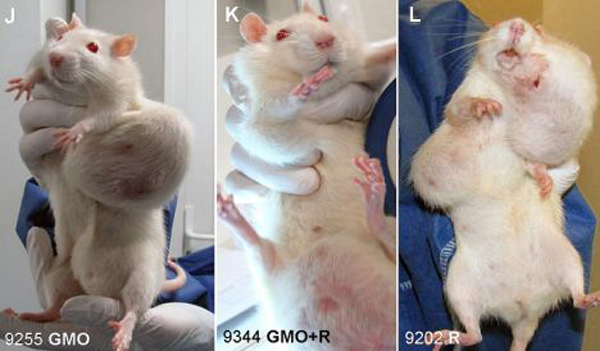Western diet high in processed sugar and altered fats linked to liver cancer
07/17/2017 / By Russel Davis

An animal study posted on The American Journal of Pathology website revealed that a typical Western diet that is high in sugar and fat was associated with an increased risk of developing chronic liver inflammation and subsequent cancer.
To carry out the study, a team of researchers at the University of California, Davis examined a group of mice that lacked an important bile receptor called farnesoid x receptor (FXR) and another group that did not lack the receptor. Previous studies have shown that mice lacking the essential receptor were at an increased risk of developing steatohepatitis and liver tumors despite being on a normal diet. The animal models were then given either a Western diet or a matching control diet for 10 months.
The experts found that both groups developed steatosis regardless of the diet. The research team also noted that the condition was more pronounced in males than in females. However, only the FXR-deficient male mice showed extensive lymphocyte and neutrophil infiltration in the liver, while only Western diet-fed, FXR-deficient male mice developed fatty adenomas.
“Gut and liver health are linked. It is clear that microbial imbalance and dysregulated bile acid synthesis are inseparable, and they jointly contribute to hepatic inflammation via the gut–liver axis. In addition, gut microbiota and bile acid profiles may explain the gender difference in liver disease, as liver cancer incidence is much higher in men than in women,” senior study investigator Dr. Yu-Jui Yvonne Wan said in an article on Genetic Engineering & Biotechnology News website.
Antibiotic treatment could make a difference
The research team has also found that broad-spectrum antibiotics effectively eliminated most gut bacteria in mice models, but triggered a different response to hepatic inflammation among FXR-deficient mice. According to the experts, a combination treatment of ampicillin, neomycin, metronidazole and vancomycin completely inhibited hepatic neutrophil and lymphocyte infiltration in mice given the control diet. However, the same effect was not seen in FXR-deficient mice. Instead, the combination treatment lead to an increase in inflammatory gene expression in FXR-deficient mice fed a Western diet.
Upon analyzing the animals’ gut microbiome composition, the research team found that Proteobacteria and Bacteroidetes remained in the system following antibiotic treatment in Western diet-fed deficient male mice. On the other hand, the experts discovered that using Gram-negative coverage antibiotic such as polymyxin B helped bolster Firmicutes and slash Proteobacteria and hepatic inflammation in the same group. According to the scientists, the harmful effects of following a Western diet on the liver may be due to the presence of inflammation-inducing Proteobacteria. The marked reduction of anti-inflammatory Firmicutes in the gut may also play a role in this increased risk, the researchers added. (Related: 10 Foods your liver loves you to consume.)
Researchers said the recent findings may have serious implications, as the study identified a link between diet and changes in gut microbiota and bile acid profile. “Moreover, in antibiotic-treated mice, the change in the profile of bile acids can also be primary as well as secondary to the alterations in gut microbiota because antibiotics can directly eliminate bile acid-generating bacteria, which in turn causes additional changes in the bile acid composition. Our results suggest that probiotics and FXR agonists hold promise for the prevention and treatment of hepatic inflammation and progression into advanced liver diseases such as cancer,” Dr. Wan said in a separate article on ScienceDaily.com.
Sources include:
Tagged Under: cancer, fatty diet, Liver cancer, western diet




















